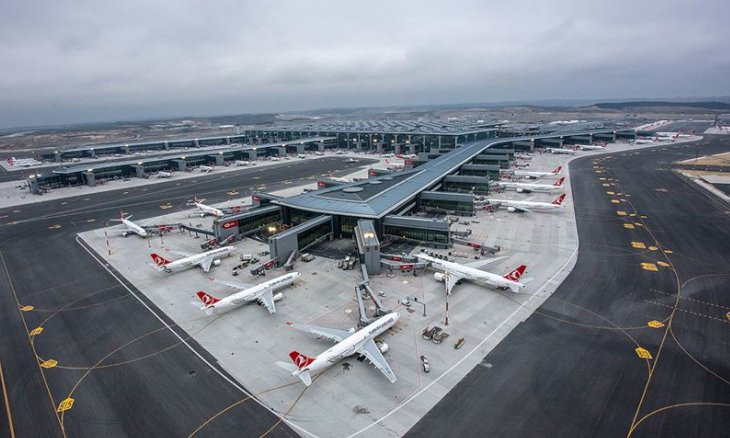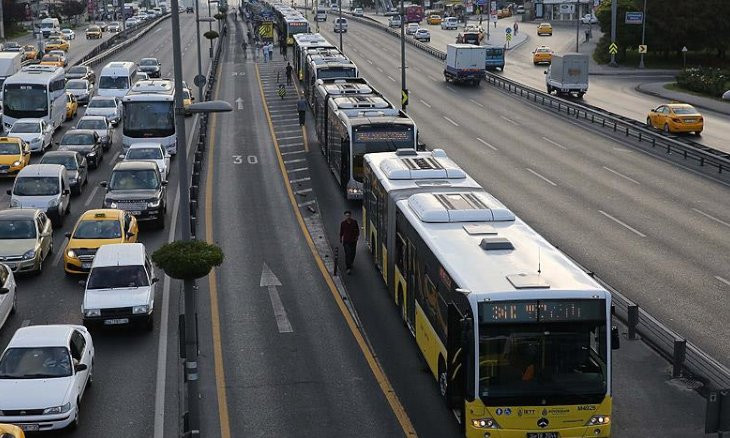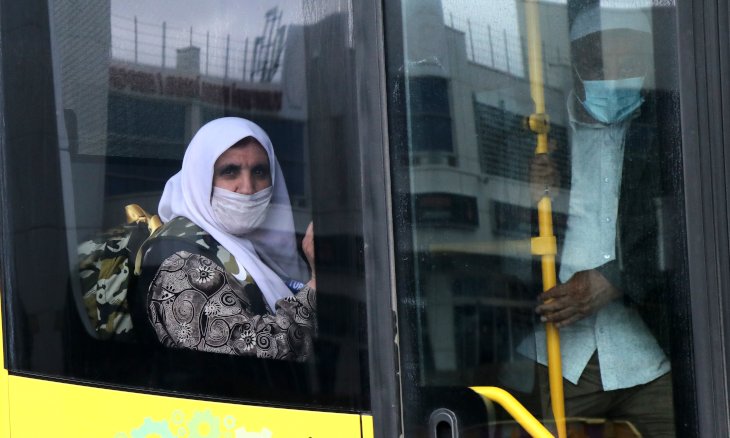Turkey quarantines thousands of pilgrims in student dormitories over coronavirus
Thousands of Muslims returning to Turkey from a pilgrimage in Saudi Arabia were taken into quarantine on March 15 due to concerns about the spread of the coronavirus (COVID-19). Thousands of students residing in dormitories belonging to the Higher Education Loans and Dormitories Institution (KYK) were told to leave the dorms at midnight, with some unable to gather their belongings. The pilgrims under quarantine, meanwhile, complained about the dormitories being "similar to a barn."
Duvar English - Reuters
 Turkey closes bars, nightclubs amid growing concerns of coronavirus spread
Turkey closes bars, nightclubs amid growing concerns of coronavirus spreadThousands of Muslims returning to Turkey from a pilgrimage in Saudi Arabia were taken into quarantine on March 15 due to concerns about the spread of the coronavirus (COVID-19).
The pilgrims were taken to student dormitories in several provinces, including those in the capital Ankara, the Central Anatolian province of Kayseri and the Central Anatolian province of Konya, prompting students to criticize the move.
The Youth and Sports Ministry said the pilgrims were to be kept under observation for 14 days in five student dormitories with a capacity of 10,330 people.
It said the three-week closure of universities in Turkey, announced last week, meant that the dormitories were mostly empty and that the remaining students had been transferred to other dormitories.
Thousands of students residing in dormitories belonging to the Higher Education Loans and Dormitories Institution (KYK) were told to leave the dorms at midnight, with some unable to gather their belongings.
 Turkey halts flights with nine European countries to contain coronavirus
Turkey halts flights with nine European countries to contain coronavirusThe students also voiced concerns on the disinfection process that will be applied after the quarantine period for the pilgrims is over.
"How are they going to disinfect these dorms? How can we trust them and get back in our rooms?" one of the students told daily Evrensel, adding that the state should have notified students a couple of days before the quarantine.
The pilgrims under quarantine, meanwhile, complained about the dormitories being "similar to a barn."
Pilgrims in a dormitory in Ankara's Gölbaşı district said that the place is not suitable for quarantining.
"The place is dirty. There are no nurses or doctors here. This place is a barn," they told Yıldırım Kaya from the main opposition Republican People's Party (CHP).
 Istanbulites ditch public transportation as coronavirus fear spreads
Istanbulites ditch public transportation as coronavirus fear spreadsThese steps came after Health Minister Fahrettin Koca called for those returning from the Umrah pilgrimage to quarantine themselves for a fortnight, saying a returnee in the last week had become the sixth person to test positive.

He then announced on March 15 that the state was actively quarantining the returnees.
"All passengers returning from the Umrah since last night are being put into quarantine in separate rooms in student dormitories," he wrote on Twitter, adding that those suspected of being ill were being taken to hospital for tests.
Earlier in March, Saudi Arabia expanded a rare freeze on pilgrimages to the Muslim holy cities of Mecca and Medina by foreigners to also include Saudi citizens and residents due to concerns about coronavirus.
Umrah refers to pilgrimage rites carried out in the holy cities throughout the year, and is separate from the annual week-long haj, which typically draws 2 million Muslims from around the world. Haj starts this year in late July.
 Coronavirus: Advice for people at high-risk groups
Coronavirus: Advice for people at high-risk groupsThe head of Turkey's religious directorate, Ali Erbaş, said on March 14 that the last 5,300 Turkish pilgrims were in the process of returning to Turkey, but at the time he said the pilgrims should self-isolate at home for two weeks.
Turkey has ramped up measures to halt the spread of the virus, closing schools and universities, holding sports events without spectators and halting flights to many countries.
In its latest move, the Turkish Interior Ministry announced on March 15 that bars and nightclubs will be closed from Monday to reduce the risk of coronavirus spreading.
On March 11 it became the last major economy to report an outbreak after taking what the World Health Organization (WHO) described as "vigilant" measures to delay it.
